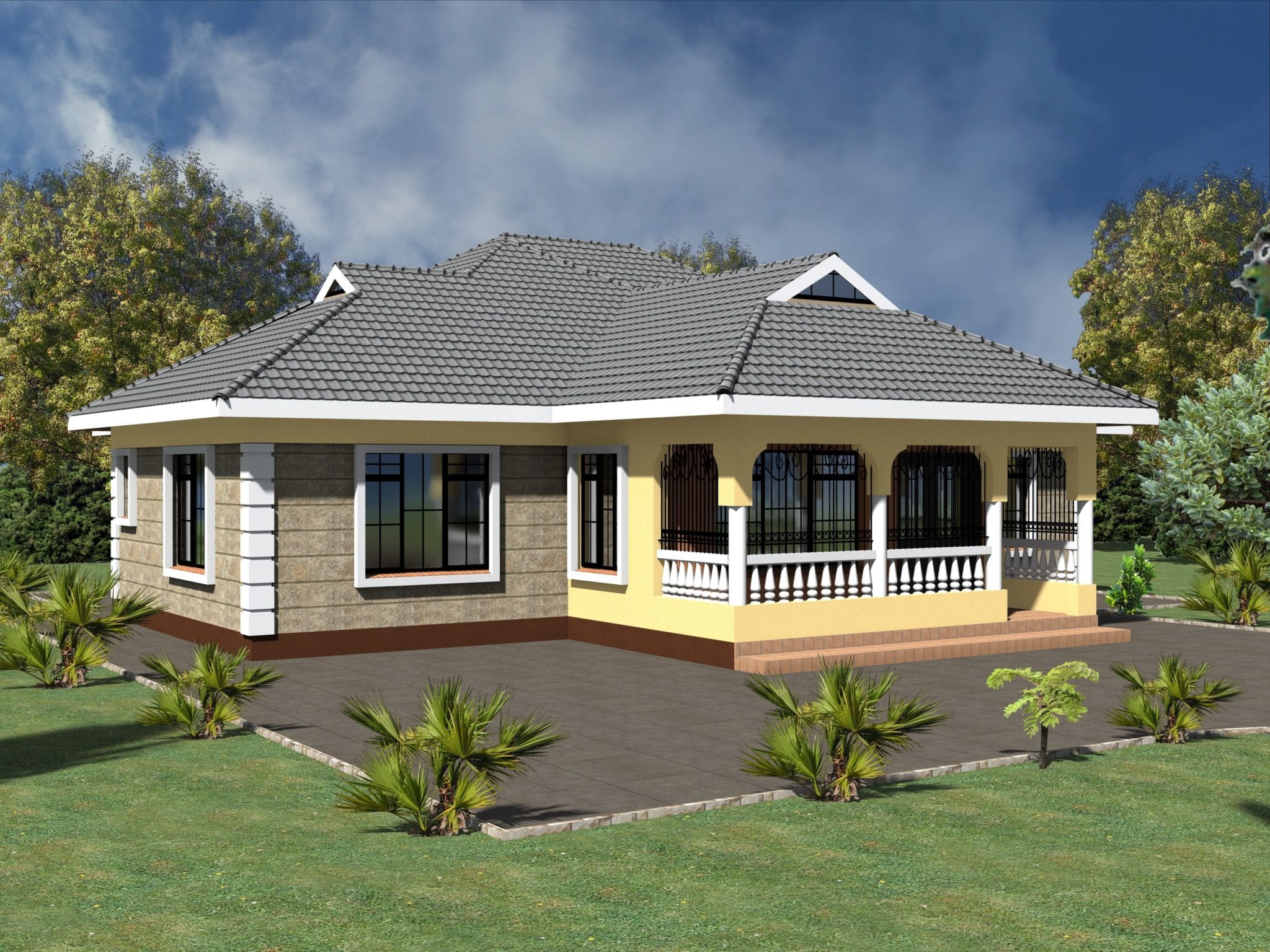Building Your Bungalow in Kenya: 4 Bedroom Bungalow House Plans In Kenya

Building your dream bungalow in Kenya is a rewarding endeavor, requiring careful planning and execution. From securing land to choosing the right materials and contractors, the journey involves several key steps. This guide provides insights into the process, emphasizing essential considerations for a successful construction project.
Understanding the Construction Process
Building a bungalow in Kenya typically involves the following stages:
- Securing Land: This is the foundation of your project. Consider factors like location, accessibility, and land size. Engage a qualified surveyor to establish property boundaries and ensure legal ownership.
- Planning and Design: This stage involves creating detailed blueprints and architectural plans. Consult an architect or a qualified draftsman to ensure the design meets your needs, complies with building regulations, and incorporates local building codes.
- Obtaining Building Permits: After design approval, apply for the necessary permits from the relevant authorities, such as the county government. These permits ensure your project adheres to safety and environmental standards.
- Foundation Construction: This crucial step involves preparing the ground for your bungalow. It includes excavating, pouring concrete, and constructing footings to support the structure.
- Superstructure Construction: This stage involves building the walls, roof, and other structural elements. Choose appropriate building materials and employ skilled masons and carpenters for this phase.
- Finishing and Interior Work: This stage involves applying plaster, painting, installing windows and doors, and finishing the interior spaces.
- Landscaping and External Works: This final step involves creating a pleasing exterior by landscaping the surrounding area, adding pathways, and installing fencing.
Choosing Building Materials
The choice of building materials is crucial for the durability, cost-effectiveness, and aesthetics of your bungalow.
- Concrete: A popular choice for foundations, walls, and floors due to its strength and durability. It is also relatively affordable and readily available in Kenya.
- Bricks: Used for walls, they provide good insulation and are available in various colors and styles.
- Timber: Commonly used for roof framing, windows, and doors. It is a renewable resource and provides good insulation.
- Steel: Utilized for structural reinforcement and roofing. It is strong, durable, and readily available.
- Roofing Materials: Consider options like corrugated iron sheets, tiles, or solar panels, depending on your budget and preferences.
Selecting the Right Contractor, 4 bedroom bungalow house plans in kenya
A competent contractor is essential for a successful construction project.
- Experience and Reputation: Look for contractors with proven experience in bungalow construction and a good track record.
- Qualifications and Licenses: Ensure the contractor holds the necessary qualifications and licenses to operate in Kenya.
- Communication and Transparency: Choose a contractor who communicates clearly, provides regular updates, and is transparent about the construction process.
- References and Reviews: Request references from previous clients and check online reviews to gauge the contractor’s performance.
Managing Construction Costs
Controlling costs is crucial for any construction project.
- Detailed Budget: Develop a comprehensive budget that includes all costs, from land acquisition to finishing and landscaping.
- Regular Monitoring: Monitor expenses closely and compare them to your budget to identify any potential overruns.
- Negotiation and Procurement: Negotiate prices with suppliers and contractors to secure the best deals.
- Payment Schedule: Establish a clear payment schedule with your contractor and ensure timely payments to maintain progress.
- Contingency Planning: Allocate a percentage of your budget for unforeseen expenses or delays.
Resources and Professionals
Building a bungalow in Kenya requires a team of professionals.
- Architect or Draftsman: Responsible for designing and creating blueprints for your bungalow.
- Contractor: Oversees the construction process and manages subcontractors.
- Surveyor: Determines property boundaries and conducts site surveys.
- Structural Engineer: Ensures the structural integrity of your bungalow.
- Masons and Carpenters: Skilled laborers responsible for building walls, roofs, and other structural elements.
- Electrician: Installs electrical wiring and fixtures.
- Plumber: Installs plumbing systems, including water pipes and drainage.
- Landscaper: Designs and creates landscaping for your bungalow.
